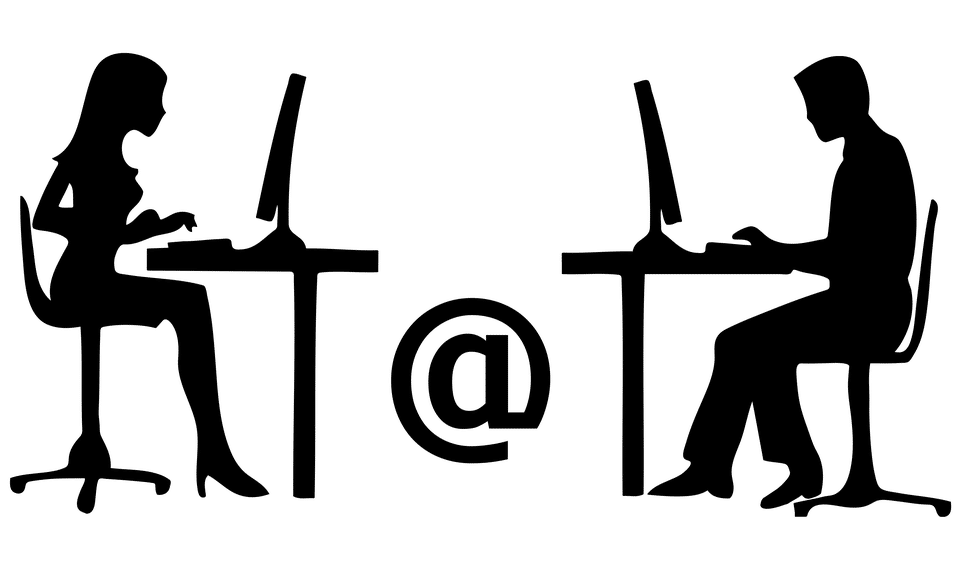Jasmine Birtles
Your money-making expert. Financial journalist, TV and radio personality.

Online freelance writing is a great way to earn additional or full-time income, and you don’t even need to leave your home to do it.
There are countless opportunities out there, you can work as little or as much as you want and you can make in excess of £100,000 a year if you follow the right advice and work hard.
You don’t necessarily need previous experience as long as you have some natural writing talent. You just need to work hard, remain professional and be willing to test yourself. There are also a few things you need to know before you begin.

Simply put, a freelance writer is someone who writes for money but isn’t tied to a single organisation. A freelance writer offers his or her services to anyone who needs a job done, getting paid for that job and then moving onto the next one.
It’s often said that freelancers are their own boss and that no one dictates what they do. This is true, to an extent. But freelancers actually have many different bosses. And they need to meet deadlines and to work to specifications just like any other employee.
A freelance writer can be tasked with completing a number of jobs. The most common job is simple content writing. There are are over a billion websites out there and they all need content. A freelance writer is often the one tasked with creating that content.

When it comes to the concept of “online freelancing”, it all revolves around something known as a “freelancing platform”. This is a essentially service that acts as a bridge between the client and the freelancer. These sites include Upwork, Guru and Freelancer, but not all should be judged equally as many are a waste of time.
You can use a freelancing platform to showcase your abilities like you would on a CV, and you can also use them to find and complete jobs.
Clients post job availabilities, writers apply to these, and the clients interview them. All of this is done through the platform, including the interview itself. And when the writer is hired, the platform continues to act as an intermediary.
If the freelancer and client agree a fee of $100, then the client must pay that $100 upfront. The platform will then hold that money in an Escrow account, sitting on it until the job is finished. Upon release, the platform takes a small cut and the writer gets the rest.

There is very little you need to get started as an online writer (apart from talent that is!). Basically you need:
You’re also going to need to sign up to Upwork. There are other freelancing platforms out there, but this is the biggest, the best and it’s where most of the work is.

Upwork uses a system of ‘Connects’, which you need to apply for jobs. The more you charge, the harder it will be to find work and the more Connects you will use.
Upwork now charges a small fee of $0.15 for each Connect, so it may be necessary to spend a little money before you secure a job. If you have a good CV and offer an attractive service, you should hopefully land a paid gig without spending more than a dollar or two.
Upwork also takes a cut of your earnings (from each client) based on the following sliding scale.
This may sound like a lot. But they put you in contact with the client, they ensure the working relationship is safe and they act as a mediator if there is an issue.
They also take care of the web hosting and, as Upwork is a trusted platform, it gets a lot of traffic from potential clients. So, it’s a small price to pay.

As a freelance writer on Upwork, you can expect to earn a maximum of $100 an hour for contracts paid by the hour (consultants and grant writers can earn more). However, many contracts are paid on a fixed price and if you work quickly, this can increase to $300 an hour.
The rates vary quite widely on Upwork, so take a look at what others are charging and set your price on the lower end as you get started. As you start writing on more complex topics and get a feel for the market, you can adjust your rates accordingly.
Remember it makes sense to base your price on the competition, not on your speed.
If you’re a mediocre writer but you’re also very slow, that doesn’t mean you should charge 3x the going rate just to make a decent hourly wage.
As with anything, you should soon speed up as you get used to the work, and can decide after a few jobs if this is something you want to seriously pursue.
There are many freelancing platforms out there, but none come close to Upwork. It’s bigger (which means more projects), it’s easier to use and there are more benefits for both the client and the freelancer.
It also has its flaws, but it used to have many more and they are steadily being ironed out.
There are millions of clients on Upwork posting hundreds of jobs every single day. Of course, there are also millions of freelancers competing for the same job as you. Any given project will have in excess of 20 applications and some have over 100.
But with a good profile, a good work ethic, some proven credentials and a little talent, you can go a long way.
The ability to work hard counts for a lot on this site. If you can regularly meet deadlines, always hit targets and respond to client messages within 24 hours, then you’re already performing a step above most of the other freelancers on the site.
A great tip is to log on during normal business hours and bid on the most recent job postings. Jobs on the second page likely already have many bidders, so the chance of landing the gig is lower the older it is.
If you’re something of a night owl, you can also log on during US business hours (New York is five hours behind the UK, Los Angeles eight hours). Many clients on Upwork are based in America, so you may find lots of new jobs appearing from around 5pm or later in the UK.
The first thing you need to do is setup your profile. Use a picture that shows your face, and make sure it’s professional.
Create a profile description of between 2 and 4 paragraphs and make sure it’s flawless. You will be expected to edit your own work, so any mistakes here will put a client off. Ideally, have a trusted friend give it a once over for any remaining errors!
You’ll want to fill every section of the profile, but need to focus more on some than others. For your work history, omit anything that’s irrelevant (whether it’s a GCSE in geography or a managerial role at McDonald’s) and focus purely on creative endeavours.
If you lack experience, spice things up, be vague, but tell the truth. If you have self-published an eBook, written an article for a print magazine and achieved a degree, then your experience can include:
It doesn’t matter if that book failed, that magazine “article” was actually a reader’s letter and that degree was in Sports Science. What matters is that you have something that catches the eye.

Your portfolio needs to be visual. You’ll be prompted to upload documents and writing samples, but no one pays attention to these. In fact, if a client wants to read a sample they will expect you to send them one during the interview.
Instead, post images that represent your work. They can be covers of books, comics or anthologies you wrote/edited, stills of videos that you scripted; marketing posters you helped to compose; and even screenshots of websites you wrote for.
You should also include a single document of your best written work. Use samples from fiction, non-fiction, scripts, website content and marketing. Paste them all into a single document and use headers to describe each of them (for example, “a marketing piece written for a leading UK beverage company”).
Most clients assume that writers can only write in certain genres or niches. This way you can prove otherwise.
Also, see our article on how to make money writing short stories here

In this industry you live or die based on your previous success. Your references might not count for much in an office job, but as a freelancer they’re what separates those who scrape by on minimum wage from those who earn a six-figure salary.
In the beginning, a single piece of bad feedback could end you, so you need to make sure you only work with clients who have a track record of leaving good feedback.
Using the options on the left of the Upwork search, narrow the results down to include the following:
Once you find a job that suits, you need to check the feedback of each client before you apply. The trick is not to look at the feedback that others have left them, but at the feedback that they have left others.
You don’t care if freelancers think they are a little slow, incomprehensible or annoying, just that they have a tendency to leave 5-star feedback.
Do what you can to keep your average rating high and be prepared to give a refund if you receive poor feedback (a refund will delete the feedback). This should hopefully be very minimal, but will protect your high feedback rating.
Find out how to make money copywriting here

Freelancing will open a lot of doors. It will introduce you to publishers, publicists, web-masters and business owners. If you stay connected to all of these, using social media to keep them close, then a simple job could lead to something massive.
Work will dry up on occasion, but the good thing is that this rarely happens once you have an established profile. Until you get to that point, here’s what you can do to keep the work coming:
Not only will a good client continue to provide, but they’ll introduce you to other clients and open many doors.
Whether you work on a platform like Upwork, or you do all of the legwork yourself, keep the following in mind:

The work isn’t always going to be there. It’s important to keep trying, because it’ll get easier. But there are also other ways you can make money.
So, if you have the time but you don’t have the jobs, and if you’ve done all you can in terms of applying and being interviewed, you can try some of the following:
See how you can make quick cash and win prizes by writing letters to magazines here

Its an amazing opportunity but i don’t have any account to be payed on. Can’t Upwork transfer the money using an email or my number?
This is simply not true. I left upwork because the fees are poor. If you’re lucky, you will only earn $100 a day on Upwork, not an hour…this piece has clearly been written by someone who has been paid to write a guest post for Upwork…maybe they got $100 for it…you won’t! “As a freelance writer on Upwork, you can expect to earn a maximum of $100 an hour for contracts paid by the hour (consultants and grant writers can earn more). However, many contracts are paid on a fixed price and if you work quickly, this can increase to… Read more »
Good article
So we’re supposed to write a novel in an hour yet still won’t get the whole £100??